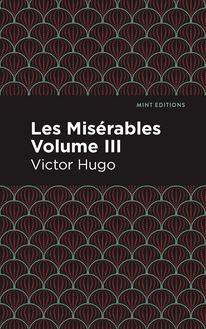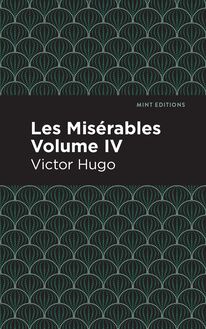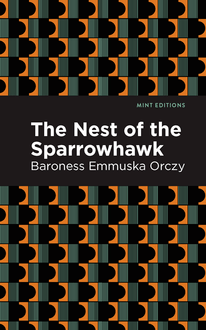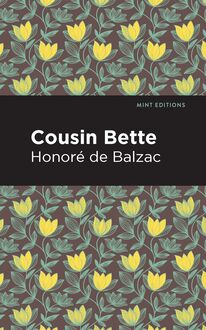-
 Univers
Univers
-
 Ebooks
Ebooks
-
 Livres audio
Livres audio
-
 Presse
Presse
-
 Podcasts
Podcasts
-
 BD
BD
-
 Documents
Documents
-
- Cours
- Révisions
- Ressources pédagogiques
- Sciences de l’éducation
- Manuels scolaires
- Langues
- Travaux de classe
- Annales de BEP
- Etudes supérieures
- Maternelle et primaire
- Fiches de lecture
- Orientation scolaire
- Méthodologie
- Corrigés de devoir
- Annales d’examens et concours
- Annales du bac
- Annales du brevet
- Rapports de stage
La lecture à portée de main
Vous pourrez modifier la taille du texte de cet ouvrage
Découvre YouScribe en t'inscrivant gratuitement
Je m'inscrisDécouvre YouScribe en t'inscrivant gratuitement
Je m'inscrisEn savoir plus
Vous pourrez modifier la taille du texte de cet ouvrage
En savoir plus

Description
The Fifth Queen: And How She Came to Court (1906) is a novel by Ford Madox Ford. The first installment of Ford’s The Fifth Queen Trilogy is set during the reign of Henry VIII, a tumultuous time of political and religious oppression in a land at the mercy of a murderous King. Ford’s trilogy recreates Tudor England in a masterful story of court intrigue, romance, and betrayal. Focusing on the tragic figure of Katharine Howard, the fifth wife of the King, Ford investigates the interconnection of sex and power in a political atmosphere clouded by violence and espionage. Depicting some of the era’s most notorious figures, including Thomas Cromwell, Bloody Mary, and the King himself, Ford makes history both entertaining and undeniably human. Brought to the court of King Henry VIII by her cousin Thomas Culpeper, Katharine Howard, a noblewoman whose family’s fortunes had been in decline for some time, inadvertently catches the eye of his majesty. Given a position as a lady in waiting for Lady Mary, Howard—though opposed by the brutally efficient schemer Thomas Cromwell—soon distinguishes herself in the eyes of the King, who makes her his fifth Queen. Thrust into the spotlight at the age of seventeen, she finds herself forced into an impossible role as a public figure whose every move could enrage her notoriously violent husband. Howard has traditionally been seen as a minor figure in the history of Tudor England. For Ford, however, a master storyteller with an eye for tragedy and a skill for developing flawed, convincingly human characters, Howard is a woman whose life and death are not only worthy of literature, but instructive for the men and women of Edwardian England. In The Fifth Queen: And How She Came to Court, he introduces his readers to this largely unknown, tragic figure, presenting her as an intelligent, confident, and morally righteous young woman whose greatest misfortune may have been to be good in a court controlled by self-serving, vindictive men. With a beautifully designed cover and professionally typeset manuscript, this edition of Ford Madox Ford’s The Fifth Queen: And How She Came to Court is a classic work of British literature reimagined for modern readers.
Sujets
Informations
| Publié par | Mint Editions |
| Date de parution | 08 juin 2021 |
| Nombre de lectures | 0 |
| EAN13 | 9781513293677 |
| Langue | English |
| Poids de l'ouvrage | 2 Mo |
Informations légales : prix de location à la page 0,0500€. Cette information est donnée uniquement à titre indicatif conformément à la législation en vigueur.
Extrait
The Fifth Queen
And How She Came to Court
Ford Madox Ford
The Fifth Queen: And How She Came to Court was first published in 1906.
This edition published by Mint Editions 2021.
ISBN 9781513290829 | E-ISBN 9781513293677
Published by Mint Editions ®
minteditionbooks.com
Publishing Director: Jennifer Newens
Design & Production: Rachel Lopez Metzger
Project Manager: Micaela Clark
Typesetting: Westchester Publishing Services
C ONTENTS P ART O NE . T HE C OMING I II III IV V VI VII P ART T WO . T HE H OUSE OF E YES I II III IV V VI VII VIII IX P ART T HREE . T HE K ING M OVES I II III IV
PART ONE
THE COMING
I
Magister Nicholas Udal, the Lady Mary’s pedagogue, was very hungry and very cold. He stood undecided in the mud of a lane in the Austin Friars. The quickset hedges on either side were only waist high and did not shelter him. The little houses all round him of white daub with grey corner beams had been part of the old friars’ stables and offices. All that neighbourhood was a maze of dwellings and gardens, with the hedges dry, the orchard trees bare with frost, the arbours wintry and deserted. This congregation of small cottages was like a patch of common that squatters had taken; the great house of the Lord Privy Seal, who had pulled down the monastery to make room for it, was a central mass. Its gilded vanes were in the shape of men at arms, and tore the ragged clouds with the banners on their lances. Nicholas Udal looked at the roof and cursed the porter of it.
“He could have given me a cup of hypocras,” he said, and muttered, as a man to whom Latin is more familiar than the vulgar tongue, a hexameter about “pocula plena.”
He had reached London before nine in one of the King’s barges that came from Greenwich to take musicians back that night at four. He had breakfasted with the Lady Mary’s women at six off warm small beer and fresh meat, but it was eleven already, and he had spent all his money upon good letters.
He muttered: “ Pauper sum, pateor, fateor, quod Di dant fero ,” but it did not warm him.
The magister had been put in the Lady Mary’s household by the Lord Privy Seal, and he had a piece of news as to the Lady’s means of treasonable correspondence with the Emperor her uncle. He had imagined that the news—which would hurt no one because it was imaginary—might be worth some crowns to him. But the Lord Privy Seal and all his secretaries had gone to Greenwich before it was light, and there was nothing there for the magister.
“You might have known as much, a learned man,” the porter had snarled at him. “Isn’t the new Queen at Rochester? Would our lord bide here? Didn’t your magistership pass his barge on the river?”
“Nay, it was still dark,” the magister answered. The porter sniffed and slammed to the grating in the wicket. Being of the Old Faith he hated those Lutherans—or those men of the New Learning—that it pleased his master to employ.
Udal hesitated before the closed door; he hesitated in the lane beyond the corner of the house. Perhaps there would be no barges at the steps—no King’s barges. The men of the Earl Marshal’s service, being Papists, would pelt him with mud if he asked for a passage; even the Protestant lords’ men would jeer at him if he had no pence for them—and he had none. He would do best to wait for the musicians’ barge at four.
Then he must eat and shelter—and find a wench. He stood in the mud: long, thin, brown in his doctor’s gown of fur, with his black flapped cap that buttoned well under his chin and let out his brown, lean, shaven and humorous face like a woodpecker’s peering out of a hole in a tree.
The volumes beneath his arms were heavy: they poked out his gown on each side, and the bitter cold pinched his finger ends as if they had been caught in a door. The weight of the books pleased him for there was much good letters there—a book of Tully’s epistles for himself and two volumes of Plautus’ comedies for the Lady Mary. But what among his day’s purchases pleased him most was a medallion in silver he had bought in Cheapside. It showed on the one side Cupid in his sleep and on the other Venus fondling a peacock. It was a heart-compelling gift to any wench or lady of degree.
He puckered up his deprecatory and comical lips as he imagined that that medal would purchase him the right to sigh dolorously in front of whatever stomacher it finally adorned. He could pour out odes in the learned tongue, for the space of a week, a day, or an afternoon according to the rank, the kindness or the patience of the recipient.
Something invisible and harsh touched his cheek. It might have been snow or hail. He turned his thin cunning face to the clouds, and they threatened a downpour. They raced along, like scarves of vapour, so low that you might have thought of touching them if you stood on tiptoe.
If he went to Westminster Hall to find Judge Combers, he would get his belly well filled, but his back wet to the bone. At the corner of the next hedge was the wicket gate of old Master Grocer Badge. There the magister would find at least a piece of bread, some salt and warmed mead. Judge Combers’ wife was easy and bounteous: but old John Badge’s daughter was a fair and dainty morsel.
He licked his full lips, leered to one side, muttered, “A curse on all lords’ porters,” and made for John Badge’s wicket. Badge’s dwelling had been part of the monastery’s curing house. It had some good rooms and two low storeys—but the tall garden wall of the Lord Privy Seal had been built against its side windows. It had been done without word or warning. Suddenly workmen had pulled down old Badge’s pigeon house, set it up twenty yards further in, marked out a line and set up this high wall that pressed so hard against the house end that there was barely room for a man to squeeze between. The wall ran for half a mile, and had swallowed the ground of twenty small householders. But never a word of complaint had reached the ears of the Privy Seal other than through his spies. It was, however, old Badge’s ceaseless grief. He had talked of it without interlude for two years.
T HE B ADGES’ ROOM—THEIR HOUSEPLACE— was fair sized, but so low ceiled that it appeared long, dark and mysterious in the winter light There was a tall press of dark wood with a face minutely carved and fretted to represent the portal of Amiens Cathedral, and a long black table, littered with large sheets of printed matter in heavy black type, that diffused into the cold room a faint smell of ink. The old man sat quavering in the ingle. The light of the low fire glimmered on his silver hair, on his black square cap two generations old; and, in his old eyes that had seen three generations of changes, it twinkled starrily as if they were spinning round. In the cock forward of his shaven chin, and the settling down of his head into his shoulders, there was a suggestion of sinister and sardonic malice. He was muttering at his son:
“A stiff neck that knows no bending, God shall break one day.”
His son, square, dark, with his sleeves rolled up showing immense muscles developed at the levers of his presses, bent his black beard and frowned his heavy brows above his printings.
“Doubtless God shall break His engine when its work is done,” he muttered.
“You call Privy Seal God’s engine?” the old man quavered ironically. “Thomas Cromwell is a brewer’s drunken son. I know them that have seen him in the stocks at Putney not thirty years ago.”
The printer set two proofs side by side on the table and frowningly compared them, shaking his head.
“He is the flail of the monks,” he said abstractedly. “They would have burned me and thousands more but for him.”
“Aye, and he has put up a fine wall where my arbour stood.”
The printer took a chalk from behind his ear and made a score down his page.
“A wall,” he muttered; “my Lord Privy Seal hath set up a wall against priestcraft all round these kingdoms—”
“Therefore you would have him welcome to forty feet of my garden?” the old man drawled. “He pulls down other folks’ crucifixes and sets up his own walls with other folks’ blood for mortar.”
The printer said darkly:
“Papists’ blood.”
The old man pulled his nose and glanced down.
“We were all Papists in my day. I have made the pilgrimage to Compostella, for all you mock me now.”
He turned his head to see Magister Udal entering the door furtively and with eyes that leered round the room. Both the Badges fell into sudden, and as if guilty, silence.
“ Domus parva, quies magna ,” the magister tittered, and swept across the rushes in his furs to rub his hands before the fire. “When shall I teach your Margot the learned tongues?”
“When the sun sets in the East,” the printer muttered.
Udal sent to him over his shoulder, as words of consolation:
“The new Queen is come to Rochester.”
The printer heaved an immense sigh:
“God be praised!”
Udal snickered, still over his shoulder:
“You see, neither have the men of the Old Faith put venom in her food, nor have the Emperor’s galleys taken her between Calais and Sandwich.”
“Yet she comes ten days late.”
“Oh moody and suspicious artificer. Afflavit deus! The wind hath blown dead against Calais shore this ten days.”
The old man pulled his long white nose:
“In my day we could pray to St. Leonard for a fair wind.”
He was too old to care whether the magister reported his words to Thomas Cromwell, the terrible Lord Privy Seal, and too sardonic to keep silence for long about the inferiority of his present day.
“When shall I teach the fair Margot the learned tongue?” Udal asked again.
“When wolves teach conies how to play on pipes,” the master printer snarled from his chest.
“The Lord Privy Seal never stood higher,” Udal said. “The match with the Cleves Lady hath gained him great honour.”
“God cement it!” the printer said fervently.
The old man pulled at his nose and gazed at nothing.
“I am tired with this chatter of the woman from Cleves,” he croaked, like
-
 Univers
Univers
-
 Ebooks
Ebooks
-
 Livres audio
Livres audio
-
 Presse
Presse
-
 Podcasts
Podcasts
-
 BD
BD
-
 Documents
Documents
-
Jeunesse
-
Littérature
-
Ressources professionnelles
-
Santé et bien-être
-
Savoirs
-
Education
-
Loisirs et hobbies
-
Art, musique et cinéma
-
Actualité et débat de société
-
Jeunesse
-
Littérature
-
Ressources professionnelles
-
Santé et bien-être
-
Savoirs
-
Education
-
Loisirs et hobbies
-
Art, musique et cinéma
-
Actualité et débat de société
-
Actualités
-
Lifestyle
-
Presse jeunesse
-
Presse professionnelle
-
Pratique
-
Presse sportive
-
Presse internationale
-
Culture & Médias
-
Action et Aventures
-
Science-fiction et Fantasy
-
Société
-
Jeunesse
-
Littérature
-
Ressources professionnelles
-
Santé et bien-être
-
Savoirs
-
Education
-
Loisirs et hobbies
-
Art, musique et cinéma
-
Actualité et débat de société
- Cours
- Révisions
- Ressources pédagogiques
- Sciences de l’éducation
- Manuels scolaires
- Langues
- Travaux de classe
- Annales de BEP
- Etudes supérieures
- Maternelle et primaire
- Fiches de lecture
- Orientation scolaire
- Méthodologie
- Corrigés de devoir
- Annales d’examens et concours
- Annales du bac
- Annales du brevet
- Rapports de stage




















